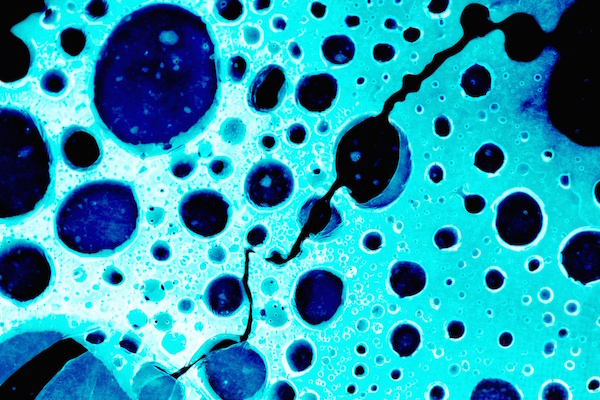
WEDNESDAY, Oct. 10 (HealthDay News) — While the vaccines Gardasil and Cervarix are currently used to prevent human papillomavirus (HPV) infection in girls, a new experimental vaccine has been created to treat females who are already infected with the virus.
Strains of HPV are thought to cause a majority of cases of cervical cancer.
This latest vaccine, designed to spur the body’s immune system into action following infection with two strains of the virus most closely linked to cervical cancer — HPV types 16 and 18 — has shown some success in early trials, researchers say.
Harnessing gene-therapy technology, the “VGX-3100” vaccine has so far been tested in just 18 women, all of whom had received prior treatment for a cervical cancer precursor known as cervical neoplasia.
Despite the small pool of patients, study author Joseph Kim, an immunologist and chief executive officer of vaccine manufacturer Inovio Pharmaceuticals Inc., was optimistic about the initial study results, while acknowledging the preliminary nature of the current findings.
Kim and his colleagues discuss their work — which was funded by Inovio — in the Oct. 10 issue of the journal Science Translational Medicine.
“The goal is to stimulate and amplify the patient’s own immune system to fight off the pre-cancer and cancer,” Kim said.
He added that so far the vaccine seemed to be effective at triggering the body’s own disease-fighting T-cells — specifically CD8+T cells — into action “so that they seek out and destroy precancerous lesions.”
Essentially all cervical cancers result from infection with one of 40 types of HPV, which is also the culprit in nearly half of all vaginal, vulvar and penile cancers, according to the U.S. National Cancer Institute.
About 6 million new genital HPV infections occur yearly in the United States, according to the U.S. Centers for Disease Control and Prevention. Roughly 12,000 American women will be diagnosed with cervical cancer this year alone.
Sexual contact is the main means of transmission of HPV.
Gardasil and Cervarix are approved for the prevention of infections involving both HPV 16 and 18. Gardasil is also effective against two additional forms of HPV (6 and 11) that cause genital warts.
Neither vaccine, however, has any impact on disease progression once HPV infection has occurred, and the study team noted that, to date, attempts to develop post-infection treatments have seen little success. For many patients, that leaves surgery, accompanied by a number of potential side effects, as the primary option for treating precancerous lesions and genital warts that follow infection.
With that in mind, Kim and his associates developed an injectable vaccine that inserts a selected piece of DNA into the patient’s cells, thereby prompting production of a key protein, which, in turn, causes the body’s immune response to begin attacking cells infected with HPV.
Over a three-month period, three doses of the vaccine were given to all 18 patients. Injections containing various vaccine doses were accompanied by administration of a small electrical pulse (called “electroporation”) to boost the patient’s post-shot immune response.
The vaccine demonstrated evidence of an ability to elicit the desired immune response against HPV infection with minimal side effects, the researchers said.
Although one seizure episode and a tension headache were reported during the study, researchers deemed them not related to the vaccine. One episode of fever resolved itself without treatment.
The study is a phase 1 clinical study. The main focus of a phase 1 study is whether a treatment is safe.
“This is a long process,” cautioned Kim, who noted this his team is already on to a second phase of research involving another 150 patients, the results of which will be available in 2013. And he suggested that if the investigation’s early promise holds up, the vaccine would be available to patients in about four to six years.
An expert not involved with the study suggested that the advent of a new therapeutic vaccine would be a welcome addition to the battle against cervical cancer.
“The [preventive] vaccines that we have are excellent and highly efficacious in women who receive them prior to their sexual debut,” said Dr. Mark Einstein, a gynecologic oncologist and director of clinical research of women’s health at Montefiore Medical Center in New York City. “But despite strong recommendations for routine vaccination, for various reasons the uptake of these vaccines has been very small, with so far just 15 percent of all vaccine-eligible girls having received all three doses needed.”
“And then the problem is that these vaccines do not induce any disease regression in someone who is already exposed to HPV,” Einstein added. “So the benefit of a therapeutic vaccine is that it will go after the disease itself. For the 300,000 women who are conservatively estimated to be undergoing surgical procedures to treat precancerous cervical lesions each year in the U.S., this raises the hope of someday having a nonsurgical approach to manage this problem. That would have to be the Holy Grail.”
More information
For more on cervical cancer and human papillomavirus, visit the U.S. National Cancer Institute.

